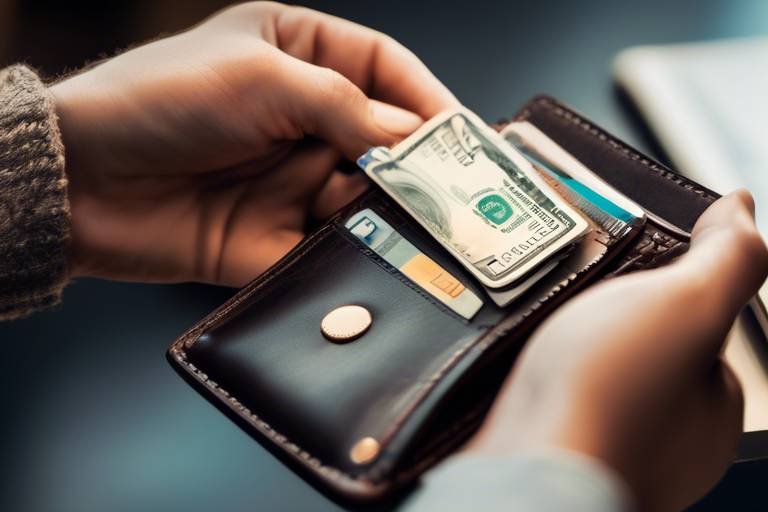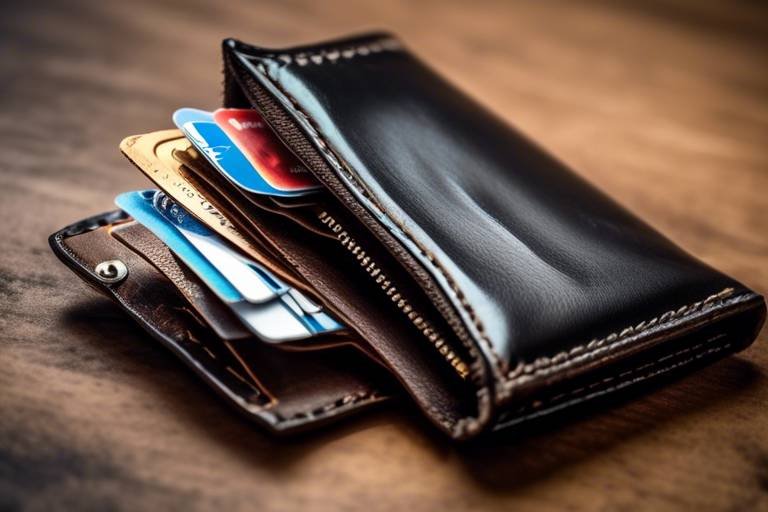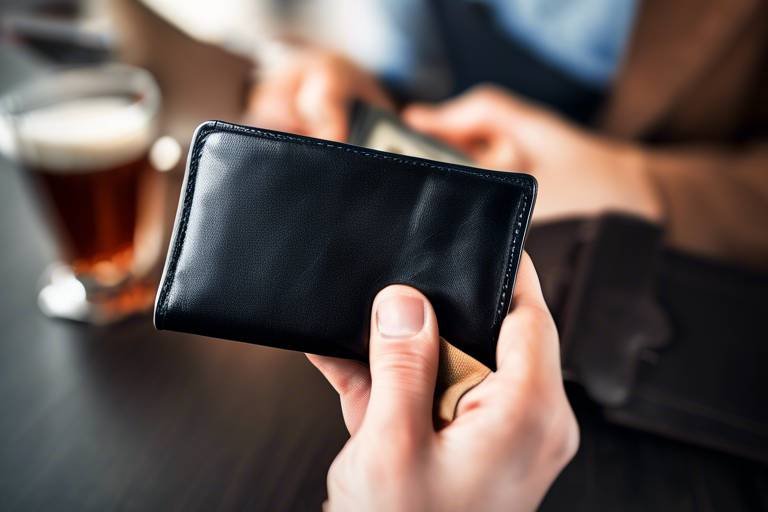How to Stay Informed About Wallet Security Vulnerabilities
In the fast-paced world of digital currencies, keeping your assets secure is more important than ever. With the rise of cryptocurrencies, the number of wallet security vulnerabilities has also increased, making it essential for users to stay informed and proactive. Imagine your digital wallet as a treasure chest; if you leave it unguarded, it becomes an easy target for thieves. This article explores effective strategies for keeping up with wallet security vulnerabilities, ensuring your digital assets remain safe. By learning about resources, best practices, and community engagement, you can enhance your security awareness and protect your investments.
A solid foundation in wallet security is crucial for anyone venturing into the world of cryptocurrencies. Digital wallets come in various forms, including software wallets, hardware wallets, and online wallets, each with its own set of vulnerabilities. Understanding these vulnerabilities is like knowing the weaknesses of a castle's walls; without this knowledge, you risk being invaded. Some common vulnerabilities include phishing attacks, malware, and insecure network connections. By grasping these concepts, you can better appreciate the importance of safeguarding your assets against potential threats.
Staying updated on security news is vital for anyone who holds digital assets. Reputable news outlets and blogs that focus on cryptocurrency and wallet security can be your lifeline in this ever-evolving landscape. For instance, websites like CoinDesk, CoinTelegraph, and CryptoSlate regularly publish articles on security vulnerabilities and protective measures. By following these sources, you can keep track of the latest developments and stay one step ahead of potential threats. Think of these outlets as your personal security team, alerting you to any dangers that may lurk on the horizon.
Many platforms offer security alerts to notify users about vulnerabilities. Subscribing to these alerts is like setting up a security system for your wallet. It ensures you receive timely information directly from trusted sources. For example, platforms like Binance and Coinbase provide notifications about security updates and potential threats. To subscribe, simply visit the settings section of your wallet or exchange account and look for the notification options. By doing this, you empower yourself with the knowledge needed to act quickly in response to emerging vulnerabilities.
Social media can be a powerful tool for real-time updates on wallet security. Platforms like Twitter and Reddit are teeming with discussions about the latest threats and protective measures. By following key influencers and organizations, you can tap into a wealth of information. For instance, consider following accounts like @VitalikButerin for insights from Ethereum's co-founder or @thegrugq, a well-known security researcher. Engaging with these communities allows you to stay informed while also participating in discussions that can deepen your understanding.
Engaging with online forums provides invaluable insights from other users. Platforms like BitcoinTalk and Reddit's r/CryptoCurrency are popular places where discussions about wallet security vulnerabilities occur. By joining these communities, you can share your experiences and learn from others, creating a rich tapestry of shared knowledge. It's like being part of a neighborhood watch group; everyone looks out for one another, sharing tips and warnings about potential threats.
Webinars hosted by industry experts offer valuable insights into the latest threats and preventive strategies in wallet security. Attending these sessions is akin to enrolling in a masterclass on digital asset protection. Many organizations, such as CoinSecurity and CryptoSecurity, regularly host webinars that delve into current vulnerabilities and how to mitigate them. By participating, you not only gain knowledge but also have the opportunity to ask questions and interact with experts in the field.
Employing security tools can significantly enhance your protection against wallet vulnerabilities. Various software solutions are designed to monitor wallet vulnerabilities and provide alerts for suspicious activities. For instance, tools like Ledger Live and Exodus come equipped with features that help you track your assets while ensuring they are secure. Utilizing these tools is like equipping your digital wallet with an advanced security system, giving you peace of mind while you navigate the cryptocurrency landscape.
Two-factor authentication (2FA) adds an extra layer of security to your wallet. It's like having a second lock on your treasure chest; even if someone manages to get the first key, they still can't access your valuables without the second. Implementing 2FA across different wallet platforms is essential to protect against unauthorized access. Most wallets offer this feature, allowing you to link your account to an authentication app like Google Authenticator or receive SMS codes. This simple step can drastically reduce the risk of your wallet being compromised.
Keeping your wallet software up to date is crucial for maintaining security. Regular updates often include patches for vulnerabilities that could be exploited by attackers. Ignoring these updates is like leaving a window open in a storm; it invites trouble. To ensure you’re always protected, enable automatic updates whenever possible or set reminders to check for updates regularly. This proactive approach can significantly mitigate risks and keep your digital assets safe from harm.
- What are the most common wallet vulnerabilities? Common vulnerabilities include phishing attacks, malware, and insecure network connections.
- How can I stay updated on wallet security? Follow reputable news outlets, subscribe to security alerts, and engage with online communities.
- Is two-factor authentication really necessary? Yes, it adds an essential layer of security to protect against unauthorized access.
- Why is it important to update wallet software? Updates provide patches for vulnerabilities and improve overall security.

Understanding Wallet Security Basics
In the digital age, understanding wallet security is not just a luxury—it's a necessity. Digital wallets, often seen as the modern equivalent of a physical wallet, store your cryptocurrencies and other digital assets. However, just like a real wallet, if not properly secured, it can be an open invitation to thieves and fraudsters. So, what exactly are the fundamental concepts of wallet security that every user should be aware of?
First and foremost, it's essential to recognize the different types of digital wallets available. They can be categorized into three main types: hot wallets, cold wallets, and hardware wallets. Hot wallets are connected to the internet, making them convenient for frequent transactions but more vulnerable to hacking. Cold wallets, on the other hand, are offline and provide a higher level of security, ideal for long-term storage. Lastly, hardware wallets are physical devices that securely store your private keys, offering the best protection against online threats.
Understanding the types of vulnerabilities is equally crucial. Wallets can be susceptible to various threats, including:
- Phishing attacks: Scammers may impersonate legitimate services to steal your login credentials.
- Malware: Malicious software can compromise your device and access your wallet.
- Weak passwords: Using easily guessable passwords can make your wallet an easy target.
Each of these vulnerabilities highlights the importance of safeguarding your assets. By being proactive and informed, you can significantly reduce your risk of falling victim to these threats. It's like locking your front door; you wouldn't leave it wide open, would you? The same principle applies to your digital wallet. Implementing strong security measures is a must, and understanding the basics is the first step.
Moreover, the significance of staying updated on wallet security trends cannot be overstated. Cyber threats evolve rapidly, and what was considered secure yesterday might not hold up today. Regularly educating yourself about the latest security practices and vulnerabilities will empower you to make informed decisions about your digital assets. Think of it as maintaining a car; regular check-ups can prevent breakdowns and ensure a smooth ride.
In summary, grasping the basics of wallet security is your first line of defense against potential threats. By understanding the types of wallets, recognizing vulnerabilities, and committing to ongoing education, you can keep your digital assets safe. Remember, in the world of cryptocurrencies, knowledge is power, and the more you know, the better equipped you'll be to protect your investments.
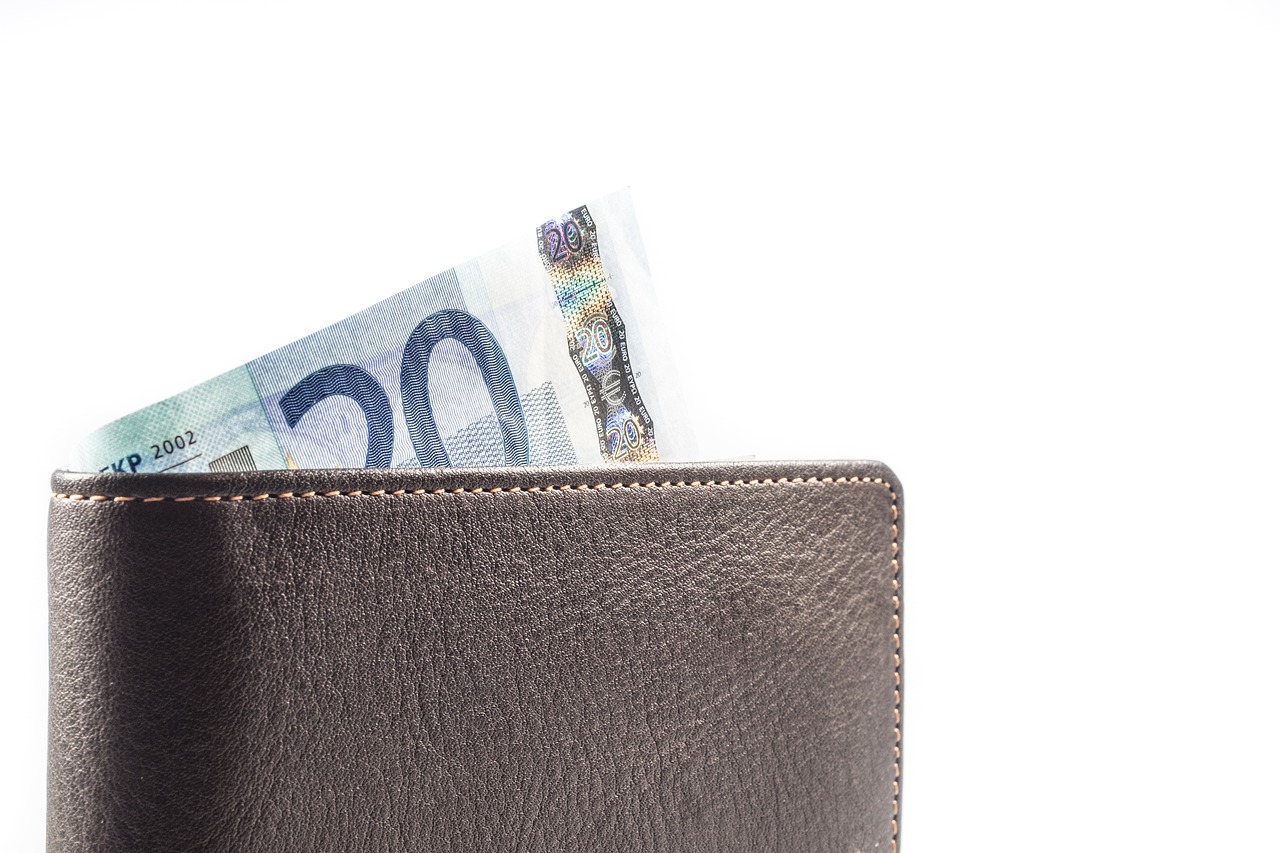
Following Security News Outlets
In the ever-evolving landscape of digital currencies, staying informed about wallet security vulnerabilities is not just a good practice; it's essential for safeguarding your assets. With the rise of cryptocurrencies, the need for reliable information sources has skyrocketed. So, where do you turn to keep your finger on the pulse of wallet security? There are several reputable news outlets and blogs dedicated to providing up-to-date information on security vulnerabilities and protective measures.
First and foremost, consider following established outlets such as CoinDesk and CryptoSlate. These platforms not only cover the latest news in the cryptocurrency world but also delve into security topics. They often publish articles that analyze recent vulnerabilities and offer expert opinions on how to mitigate risks. Understanding the context of these articles can help you make informed decisions about your wallet security.
Another valuable resource is Medium, where numerous cybersecurity professionals share their insights. Many experts write about wallet security vulnerabilities and provide practical advice for users. By following these writers, you can gain access to a wealth of knowledge that might not be available through traditional news outlets.
Additionally, subscribing to newsletters from these platforms can ensure that you receive the latest updates directly in your inbox. Many sites offer email alerts that summarize the most critical news stories and vulnerabilities, allowing you to stay informed without having to scour the internet daily. This proactive approach can be a game-changer in your security strategy.
To give you a clearer picture, here's a quick comparison table of some recommended security news outlets:
| News Outlet | Focus Area | Subscription Options |
|---|---|---|
| CoinDesk | Cryptocurrency News & Security | Email Alerts |
| CryptoSlate | Market Analysis & Security | Email Subscription |
| Medium | Expert Insights & Articles | Follow Writers |
By actively engaging with these sources, you'll not only stay updated on the latest vulnerabilities but also learn about emerging trends and security practices that can protect your digital assets. Remember, knowledge is power, and in the world of cryptocurrency, being informed can make all the difference.
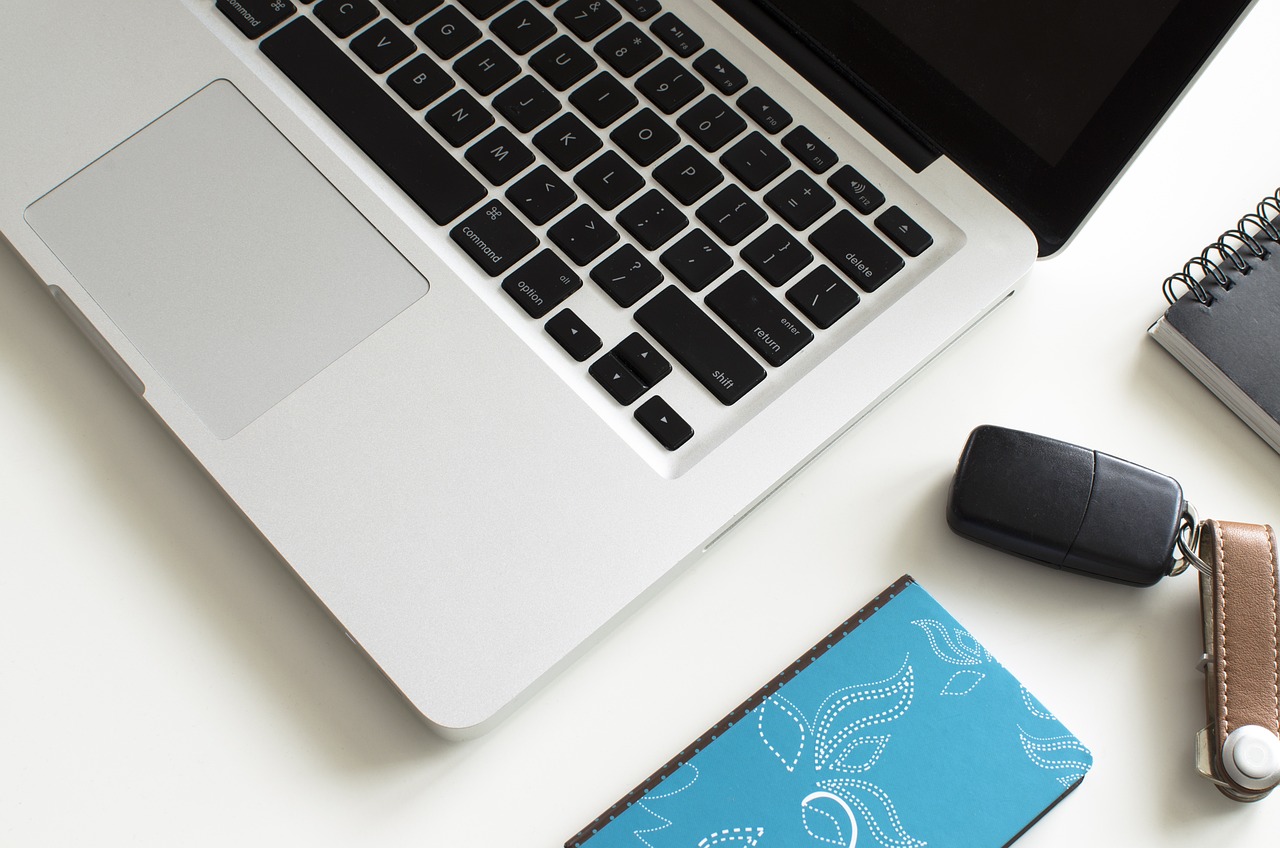
Subscribing to Security Alerts
In the fast-paced world of cryptocurrency, where new vulnerabilities can emerge overnight, staying informed is not just a luxury—it's a necessity. One of the most effective ways to keep your digital assets secure is by . These alerts serve as your personal watchdog, notifying you about potential threats and vulnerabilities that could impact your wallet. Imagine having a trusted friend who always has your back, keeping an eye out for any dangers lurking around the corner. That’s exactly what these alerts provide!
Many reputable platforms and organizations offer security alert subscriptions. When you sign up, you often receive timely updates regarding vulnerabilities, patches, and best practices directly to your inbox or mobile device. This means you can react quickly, ensuring that your assets remain safe from potential threats. But how do you go about subscribing to these alerts? It’s simpler than you might think!
First, identify the platforms you use for your digital wallets. Most wallet providers have a dedicated section on their websites where you can sign up for security notifications. For instance, leading wallets like Coinbase, Exodus, and Ledger often provide options to receive alerts via email or through their mobile apps. By opting in, you ensure that you’re always in the loop regarding any security updates.
Additionally, consider subscribing to security-focused newsletters from reputable sources. Websites such as CoinDesk and CryptoSlate regularly publish articles on the latest security vulnerabilities and protective measures. By signing up for their newsletters, you’ll receive curated content that keeps you informed about the broader landscape of wallet security.
Here’s a quick guide to help you get started:
- Step 1: Visit the official website of your wallet provider.
- Step 2: Look for a section labeled “Security Alerts” or “Notifications.”
- Step 3: Enter your email address and any other required information.
- Step 4: Confirm your subscription through the email you receive.
Moreover, many security firms and cybersecurity experts also offer their own alerts. Following them on social media or subscribing to their blogs can provide an additional layer of awareness. For example, organizations like Chainalysis and FireEye are at the forefront of cybersecurity and regularly publish insights that can help you stay ahead of threats.
In summary, subscribing to security alerts is like setting up a security system for your digital wallet. It provides peace of mind and allows you to act swiftly in the face of potential threats. With just a few clicks, you can ensure that you’re always informed and ready to protect your valuable digital assets!
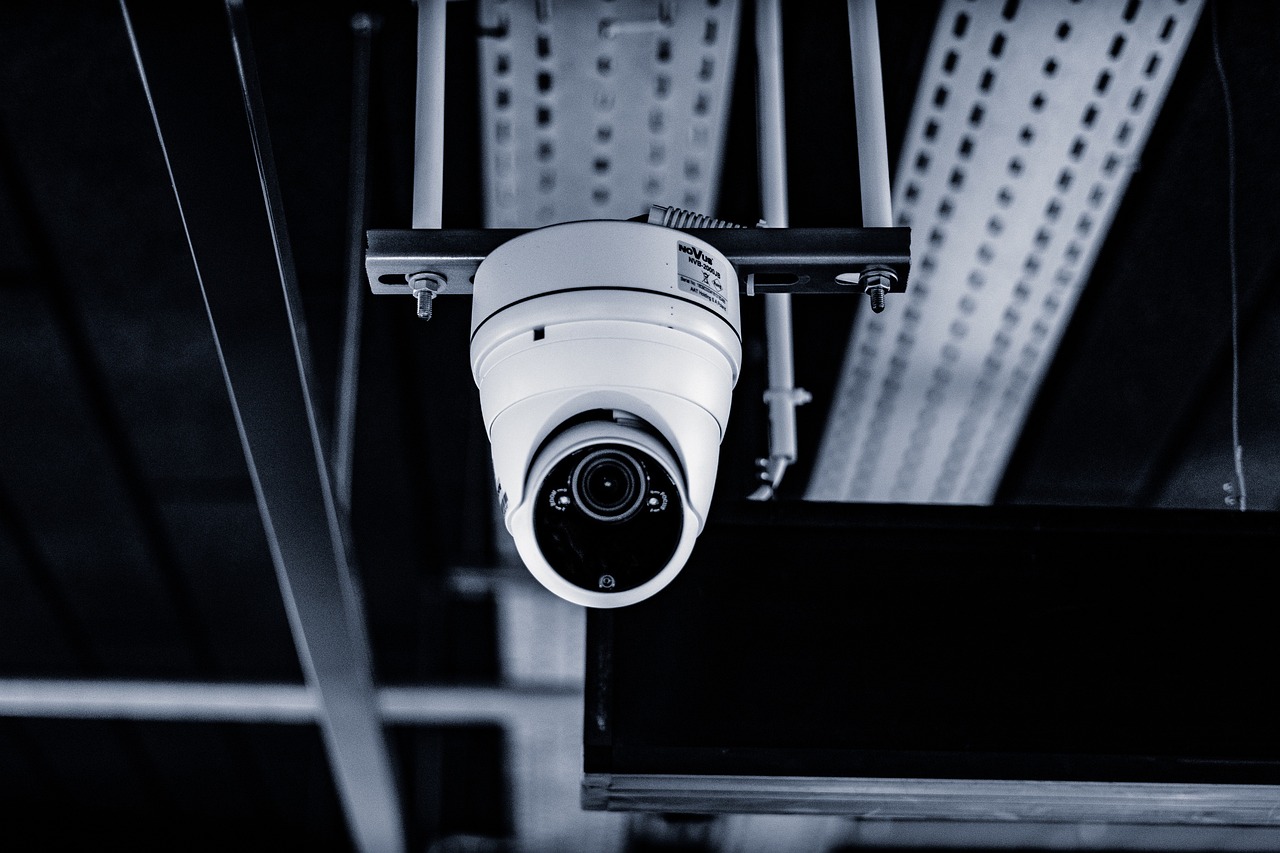
Utilizing Social Media for Updates
In our fast-paced digital world, social media has emerged as a powerful tool for staying informed about wallet security updates. Imagine it as your personal news ticker, constantly scrolling with the latest information tailored just for you. By leveraging platforms like Twitter, Reddit, and Telegram, you can receive real-time alerts about vulnerabilities, security breaches, and protective measures. But how do you effectively utilize these platforms to your advantage?
First, consider following key influencers and experts in the cryptocurrency and security space. These individuals often share valuable insights and breaking news that can help you stay one step ahead of potential threats. For instance, following cybersecurity firms and cryptocurrency exchanges on Twitter can provide you with timely updates directly from the source. Here’s a quick rundown of who to follow:
- Crypto Security Experts: Look for individuals who specialize in wallet security and have a track record of sharing reliable information.
- Official Accounts: Follow the official accounts of your wallet provider and any relevant security organizations.
- Industry News Outlets: Subscribe to updates from reputable news sites that focus on cryptocurrency and security.
Moreover, engaging with communities on platforms like Reddit can be incredibly beneficial. Subreddits such as r/CryptoCurrency and r/BitcoinSecurity are treasure troves of user-generated content where members share their experiences and advice on wallet security. By participating in discussions, you not only gain insights but also contribute to a collective understanding of emerging threats. Just remember to approach these communities with an open mind and a willingness to learn.
Another effective strategy is to join dedicated groups on Telegram or Discord. These platforms often host real-time discussions and can be a great place to get immediate answers to your questions. Many groups are moderated by security professionals who can provide expert advice and resources. Just be cautious about the information you consume—ensure that the group is reputable and the information shared is credible.
In conclusion, utilizing social media for updates on wallet security is not just about passive consumption; it's about actively engaging with the community and experts. By following the right accounts, participating in discussions, and joining relevant groups, you can significantly enhance your awareness and responsiveness to wallet security vulnerabilities. So, dive in and start connecting with the wealth of knowledge available at your fingertips!
1. How can I find reliable sources on social media for wallet security updates?
Look for verified accounts of security experts, reputable news outlets, and official wallet providers. Engaging with communities on platforms like Reddit can also help you identify trustworthy sources.
2. Is it safe to follow cryptocurrency influencers on social media?
While many influencers provide valuable information, it's essential to conduct your own research and verify the credibility of the information shared. Always cross-reference with trusted sources.
3. How often should I check social media for updates on wallet security?
Ideally, you should check regularly, especially during times of heightened security concerns or after major news events in the cryptocurrency space. Setting up alerts for specific accounts can also help.
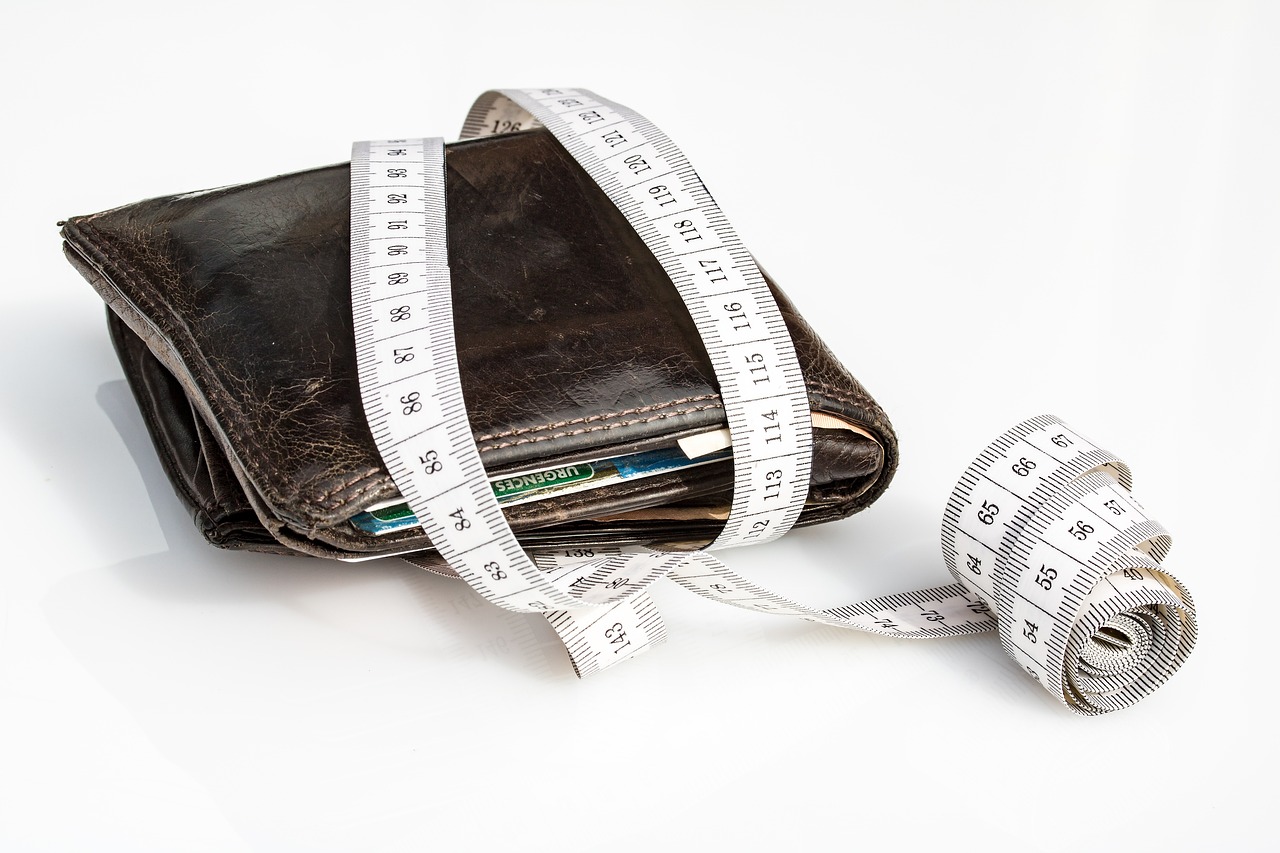
Joining Online Forums and Communities
Engaging with online forums and communities is like stepping into a bustling marketplace of ideas and experiences, especially when it comes to wallet security. These platforms are treasure troves of information where users share their stories, insights, and advice on how to navigate the ever-evolving landscape of digital asset protection. Imagine walking into a room filled with experts and enthusiasts alike, all ready to discuss the latest vulnerabilities and security measures—this is what online forums offer.
One of the most significant advantages of joining these communities is the collective knowledge available at your fingertips. Whether you're a seasoned crypto investor or just starting, these forums can provide invaluable insights into how others are managing their wallet security. You can learn about the latest scams, security breaches, and even the best practices that have worked for others. It's like having a personal advisory board that you can consult at any time.
Some popular forums include Bitcointalk, Reddit, and CryptoCompare. Each of these platforms has active discussions on wallet security vulnerabilities and offers a space for users to ask questions and share solutions. For instance, on Reddit, you can find subreddits specifically dedicated to cryptocurrency security where members frequently post about recent threats and protective measures. Engaging in these discussions not only enhances your knowledge but also connects you with like-minded individuals who are equally invested in safeguarding their digital assets.
Moreover, participating in these communities allows you to stay updated on the latest trends and tools in wallet security. Many users share their experiences with different security tools, software, and practices, providing a real-world perspective that can be more insightful than any article. You can even ask for recommendations based on your specific needs, making it easier to find solutions that work best for you.
However, it’s essential to approach these forums with a critical mind. While the community can offer great advice, not all information is reliable. Always cross-reference what you learn with trusted sources before making any significant changes to your wallet security practices. In this way, you can sift through the noise and focus on what truly matters for your digital safety.
In summary, joining online forums and communities is a proactive step toward enhancing your wallet security knowledge. By engaging with others, sharing your experiences, and learning from the collective wisdom of the group, you can fortify your defenses against potential vulnerabilities. So why not dive in? The more you engage, the more secure your digital assets will be.
- What are the best forums for wallet security discussions?
Some of the best forums include Bitcointalk, Reddit, and CryptoCompare, where users actively discuss wallet security issues.
- How can I verify the information I find in forums?
Always cross-reference forum discussions with reputable security news outlets and official documentation from wallet providers.
- Are there any risks associated with joining online communities?
Yes, while many users share valuable insights, be cautious as not all information may be accurate. Always verify before acting on advice.
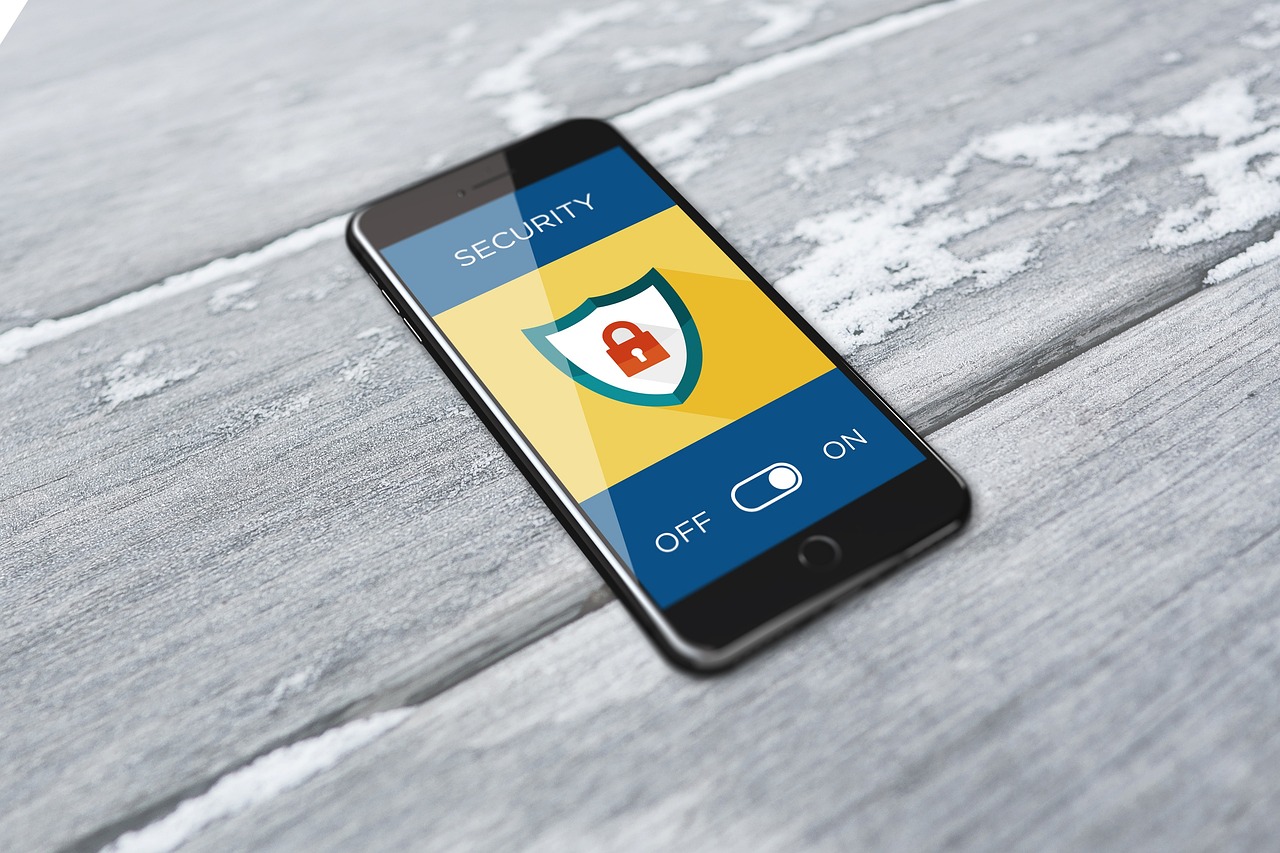
Participating in Security Webinars
In today’s fast-paced digital world, staying ahead of security threats is more crucial than ever, especially when it comes to protecting your digital assets. One of the most effective ways to keep yourself informed about the latest in wallet security is by . These online sessions are often hosted by industry experts who share their insights on current vulnerabilities, emerging threats, and best practices for safeguarding your assets. Think of webinars as virtual conferences where you can gather knowledge from the comfort of your home, without the hassle of travel.
Webinars allow you to engage with knowledgeable speakers and ask questions in real-time, providing a unique opportunity to clarify any doubts you may have about wallet security. Many experts use interactive elements such as polls and Q&A sessions to make these webinars more engaging and informative. You might wonder, “How can I find these webinars?” Well, many platforms and organizations regularly host them, and a simple search online can lead you to a treasure trove of resources.
When you participate in these sessions, you not only gain valuable information but also become part of a community that values security. Often, attendees share their own experiences and tips, creating a rich dialogue that enhances your understanding. Here are a few benefits of joining security webinars:
- Expert Insights: Learn from the best in the field about the latest trends and threats.
- Networking Opportunities: Connect with other participants who share your interests in security.
- Up-to-Date Information: Get immediate updates on vulnerabilities and protective measures.
Additionally, many webinars are recorded, allowing you to revisit the material at your convenience. This is especially helpful for those who may not be able to attend live sessions due to scheduling conflicts. Just imagine being able to pause and rewind a segment that particularly piqued your interest—it's like having a personal security tutor!
In conclusion, participating in security webinars is an excellent strategy for anyone looking to enhance their knowledge of wallet security. It’s not just about absorbing information; it’s about becoming an active participant in the ongoing conversation about digital safety. So, the next time you hear about a webinar on wallet security, don’t hesitate—jump in, engage, and elevate your understanding of how to protect your digital assets effectively.
Q: How do I find upcoming security webinars?
A: You can find upcoming webinars through various platforms like Eventbrite, Meetup, or specific cybersecurity websites that regularly host events.
Q: Are these webinars free to attend?
A: Many webinars are free, but some may charge a fee, especially if they offer exclusive content or certifications.
Q: Can I ask questions during the webinar?
A: Yes, most webinars include a Q&A segment where you can ask questions directly to the presenters.
Q: What if I miss a live webinar?
A: Most webinars are recorded, and you can often access the recording later. Be sure to check with the host for availability.

Utilizing Security Tools and Software
In today's digital landscape, where cyber threats are as common as the air we breathe, utilizing security tools and software has become essential for anyone looking to protect their digital assets. Think of these tools as your personal security guards, always on the lookout for potential vulnerabilities and threats. Just like you wouldn’t leave your front door unlocked, you shouldn’t leave your digital wallet unprotected. So, let’s dive into some of the key tools and software that can help you bolster your wallet's security.
First and foremost, we have anti-virus software. This is your first line of defense against malware and phishing attacks that could compromise your wallet’s security. Regularly updating your anti-virus software ensures that you have the latest protection against newly discovered threats. Additionally, consider using firewalls to create a barrier between your internal network and potential intruders. A strong firewall can prevent unauthorized access to your wallet and other sensitive information.
Another vital tool in your security arsenal is encryption software. Encryption acts like a secret code that only you can decipher. By encrypting your wallet data, even if a hacker manages to access it, they won't be able to make sense of the information without the proper key. This adds an extra layer of security that is incredibly important in today's world.
Moreover, utilizing monitoring software can help you keep an eye on your wallet's activities. These tools can alert you to any suspicious transactions or unauthorized access attempts. Some popular monitoring tools even offer real-time alerts, which can help you react swiftly to potential threats. For example, if you notice a transaction that you didn’t authorize, you can take immediate action to secure your wallet.
But wait, there’s more! Implementing multi-signature wallets is another effective strategy. These wallets require multiple signatures to authorize a transaction, making it significantly harder for a single hacker to gain control. It’s like needing multiple keys to open a safe—just because someone has one key doesn’t mean they can access the contents.
To give you a clearer picture of how these tools can work together, here’s a simple table summarizing their functions:
| Security Tool | Function |
|---|---|
| Anti-virus Software | Protects against malware and phishing attacks. |
| Firewalls | Prevents unauthorized access to your network. |
| Encryption Software | Secures your wallet data by encoding it. |
| Monitoring Software | Alerts you to suspicious activities in real-time. |
| Multi-signature Wallets | Requires multiple approvals for transactions. |
Finally, remember that while tools and software are incredibly helpful, they are not a silver bullet. Regularly reviewing your security practices and staying informed about the latest threats is just as crucial. Think of it as a continuous journey rather than a one-time fix. So, gear up, stay informed, and keep your digital assets safe!
Q: What is the best security tool for protecting my wallet?
A: There isn't a one-size-fits-all answer, as the best tool depends on your specific needs. However, a combination of anti-virus software, firewalls, and encryption tools is highly recommended.
Q: How often should I update my security software?
A: It's best to update your security software regularly, ideally set to automatic updates to ensure you have the latest defenses against new threats.
Q: Can I rely solely on security tools for my wallet's safety?
A: While security tools are essential, they should be part of a broader strategy that includes good practices, like using strong passwords and enabling two-factor authentication.

Implementing Two-Factor Authentication
When it comes to securing your digital wallet, implementing Two-Factor Authentication (2FA) is like adding a high-tech lock to your front door. It’s a simple yet effective way to enhance your security and protect your digital assets from unauthorized access. But what exactly is 2FA? Simply put, it’s a security process that requires two different forms of identification before granting access to your wallet. This typically involves something you know (like your password) and something you have (like a mobile device or a hardware token).
Imagine you’re trying to access your wallet. First, you enter your password, which is the first layer of security. But then, instead of just letting you in, the system sends a unique code to your phone. You must enter that code to complete the login process. This means that even if someone has stolen your password, they can’t access your wallet without that second piece of information. It’s like needing both a key and a fingerprint to unlock a safe!
Implementing 2FA is relatively straightforward, and most wallet providers support it. Here’s how you can set it up:
- Log into your wallet account and navigate to the security settings.
- Look for the option to enable Two-Factor Authentication.
- Choose your preferred method for receiving codes—this could be via SMS, email, or a dedicated authentication app.
- Follow the on-screen instructions to link your device.
- Once set up, test it to ensure everything is working smoothly.
However, while 2FA significantly boosts your security, it’s not foolproof. It’s essential to choose a reliable method for receiving your codes. For instance, using an authentication app like Google Authenticator or Authy is generally more secure than SMS, as SMS can be intercepted. Additionally, be cautious of phishing attempts that may try to trick you into revealing your 2FA codes.
In conclusion, implementing Two-Factor Authentication is a crucial step in safeguarding your wallet. It adds an extra layer of security that can deter even the most determined attackers. So, don’t wait—secure your digital assets today!
1. What is Two-Factor Authentication?
Two-Factor Authentication (2FA) is a security measure that requires two forms of identification before granting access to an account, typically combining something you know (like a password) with something you have (like a phone).
2. Why should I use 2FA for my digital wallet?
Using 2FA significantly increases the security of your digital wallet by making it much harder for unauthorized users to gain access, even if they have your password.
3. Can I use 2FA with all wallet providers?
Most reputable wallet providers support 2FA, but it’s always best to check the security settings of your specific wallet to confirm.
4. What if I lose my phone with 2FA enabled?
If you lose your phone, you may need to use backup codes provided during the 2FA setup process, or you may need to go through a recovery process with your wallet provider to regain access.

Regularly Updating Wallet Software
Keeping your wallet software up to date is not just a good practice; it's an essential step in safeguarding your digital assets. Imagine your wallet as a high-tech vault. If the lock on that vault is outdated or has a known flaw, it becomes an easy target for intruders. Regular updates are like installing the latest, most secure locks that technology has to offer, ensuring that your assets remain protected against the latest threats.
Every time developers release an update, they are typically addressing vulnerabilities that have been discovered since the last version. These vulnerabilities can range from minor bugs to significant security flaws that could potentially expose your funds. By neglecting these updates, you are essentially leaving your vault door ajar, inviting cybercriminals to take advantage of any weaknesses they might find.
But how do you ensure that you are always using the most current version of your wallet software? Here are a few tips:
- Enable Automatic Updates: Most wallet applications offer an option to enable automatic updates. This feature ensures that you receive the latest security patches as soon as they are available, without having to remember to check manually.
- Regularly Check for Updates: If automatic updates are not available, make it a habit to check for updates regularly—at least once a month. Many developers announce updates on their official websites or social media platforms.
- Follow Official Channels: Stay connected with the official channels of your wallet provider. Whether it's through their website, newsletter, or social media, being in the loop will help you stay informed about new updates and security advisories.
Moreover, it's crucial to read the release notes that accompany updates. These notes often detail what vulnerabilities have been fixed and what new features have been added. Understanding these changes can give you insights into how your wallet's security has improved and what potential risks have been mitigated.
In addition to updating your wallet software, consider the overall security of your device. Ensure that your operating system and any antivirus software are also up to date. A well-rounded approach to security will help create multiple layers of protection, making it significantly harder for attackers to breach your defenses.
In summary, regularly updating your wallet software is a critical component of maintaining security in the ever-evolving landscape of digital assets. By staying proactive and informed, you can significantly reduce your risk of falling victim to cyber threats. Remember, in the world of cryptocurrency, knowledge is power, and taking these steps will empower you to keep your assets safe and secure.
Q: How often should I update my wallet software?
A: Ideally, you should check for updates at least once a month. If automatic updates are available, enable them to ensure you always have the latest version.
Q: What should I do if I miss an update?
A: If you realize you've missed an update, promptly check the wallet provider's website for the latest version and update immediately. It's better to be safe than sorry!
Q: Are updates always safe?
A: While most updates are intended to enhance security, always download updates from official sources to avoid malicious software. Check release notes to understand what changes have been made.
Q: Can I still use my wallet if I don't update it?
A: Technically, yes, but it is highly discouraged. Running outdated software increases your vulnerability to attacks, putting your assets at risk.
Frequently Asked Questions
- What are the common vulnerabilities associated with digital wallets?
Digital wallets can be susceptible to various vulnerabilities, including phishing attacks, malware infections, and insecure storage of private keys. Understanding these risks is crucial for safeguarding your assets.
- How can I stay updated on wallet security news?
You can stay informed by following reputable security news outlets, subscribing to newsletters, and engaging with social media channels that focus on cryptocurrency security. This helps you keep track of the latest vulnerabilities and protective measures.
- What is two-factor authentication (2FA) and why is it important?
Two-factor authentication (2FA) is an extra layer of security that requires not only a password but also a second form of verification, like a text message code. Implementing 2FA significantly reduces the risk of unauthorized access to your wallet.
- Are there specific tools for monitoring wallet security?
Yes, there are various security tools and software designed to monitor wallet vulnerabilities, detect suspicious activities, and provide alerts. Utilizing these tools can greatly enhance your protection against potential threats.
- How often should I update my wallet software?
It's essential to regularly update your wallet software whenever updates are available. These updates often include security patches that address vulnerabilities, helping to protect your assets from potential attacks.
- What role do online forums play in wallet security?
Online forums are valuable resources for sharing knowledge and experiences related to wallet security. Engaging in these communities can provide insights into new vulnerabilities and effective protective measures from other users.
- Can I receive alerts about wallet vulnerabilities?
Absolutely! Many platforms offer security alert subscriptions that notify you about vulnerabilities and threats. Signing up for these alerts ensures you receive timely information from trusted sources.
- How can social media help me with wallet security?
Social media platforms like Twitter and Reddit are great for real-time updates on wallet security. By following key influencers and organizations, you can quickly learn about the latest threats and security practices.


